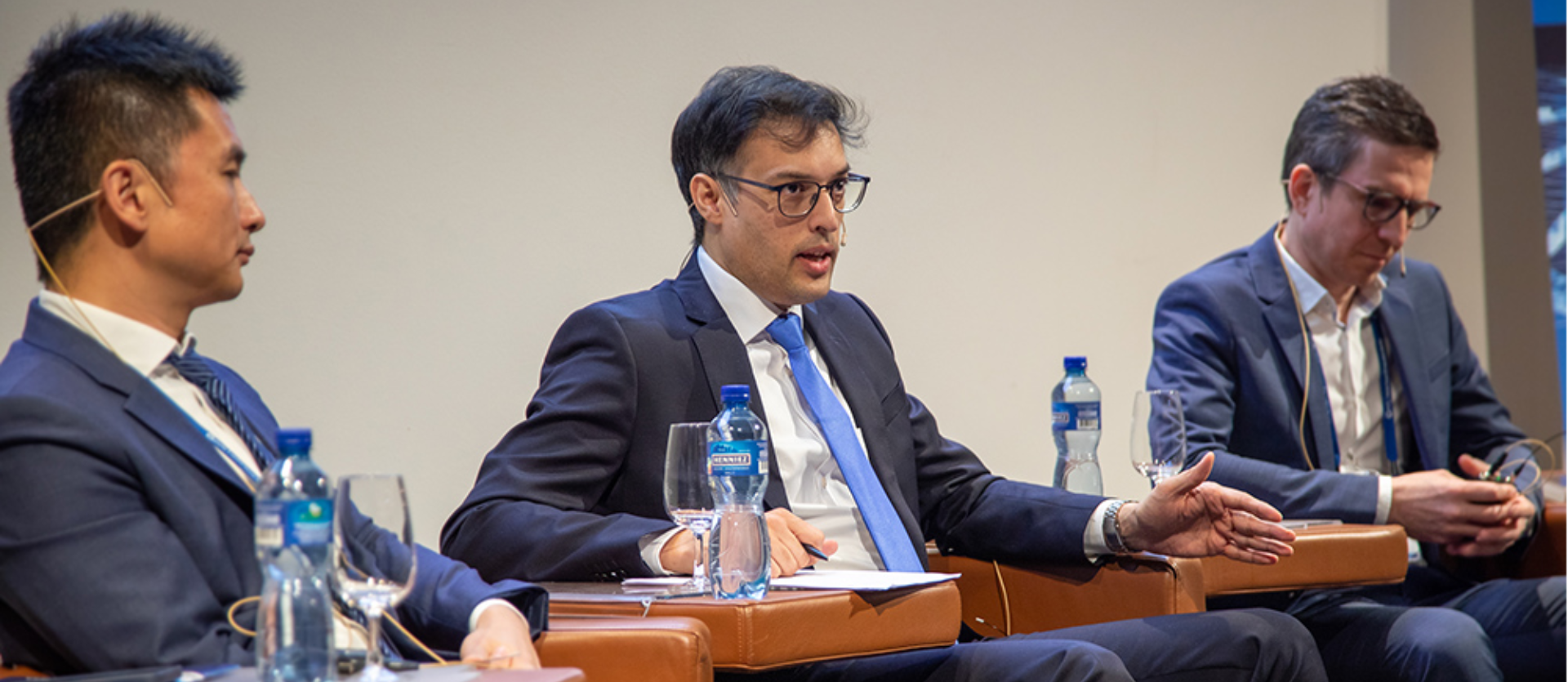
Over a decade ago, Kunal Chandra was a regular oil and gas man. He was a strategic advisor at international oil giant Shell early in his career, and at one point he was managing production operations at the world’s second-largest liquefied natural gas (LNG) plant.
“When I first started out, energy sounded like a reasonable industry. Everyone wants more energy, and the quality of people’s lives depends on how much affordable energy they have access to,” he said. “But when I came to IMD, I met a number of people with different views on energy, and particularly, its impact on the planet. It started to challenge my worldview of energy and the energy transition. That was when I started to doubt the mental models I had developed within the echo chambers of the oil and gas industry.”
In the process, Chandra also started thinking about the future of Big Oil as the world moves toward net zero. “You may be running a CO2-intensive business which is making a lot of money today. But as the world goes through the green transition, what is the long-term viability of these businesses? It’s a question of having a focus on short-term profitability or long-term viability.”
Making a mark on the world
In 2006, armed with a chemical engineering degree from the Indian Institute of Technology in Delhi, India, Chandra was eager to make his mark on the world. “Back then, I had never traveled out of India, and I was thinking about what I wanted to do next. I told myself I would join any company that would take me abroad because I wanted to travel and meet more people,” he said.
He saw a job opening for a process engineer at oil and gas conglomerate Royal Dutch Shell and jumped at the opportunity to kick-start his career in the energy industry.

Over the next few years, Chandra steadily climbed his way up the career ladder in the oil and gas industry. At Shell, he was assigned to advise the President of Shell Global Solutions East Region for Shell’s third-largest global technology hub in India, and he was seconded to Nigeria LNG where he was responsible for the asset integrity of its gas production facility. A couple of years later, he returned to Shell as a commercial advisor for global floating LNG deals.
In 2016, Chandra enrolled in IMD’s MBA program, which is known for its focus on leadership development. Chandra had closely followed the IMD MBA program over the years while at Shell; IMD had close ties with the company and many of its senior leaders had excelled in their careers after spending a stint at IMD.
Bringing out the best in others
A key takeaway from the program was the new perspective he had gained on leadership. “We often think that if you are the best individual performer, you would be promoted to become the leader because you are the best amongst the peer group,” Chandra said. “But a successful leader is one who brings out the best in others, not the person who is the ‘best’ among them.
After graduating with an Honors degree from IMD, Chandra decided to pivot to renewable energy.
Following the MBA, Chandra joined the prestigious Siemens CEO* Program which was designed to recruit top talent into Siemens and fast-track leadership development. Within two months, he was promoted to lead the New Energy Business for Siemens Energy. In this role, he focused on critical energy transition-related themes such as hydrogen, synthetic fuels, and decentral energy systems. He also led the carve-out of the Siemens Energy Business from Siemens Group after it had become clear that, given the challenge of energy transition, Siemens Energy should be allowed to operate as a standalone company with direct access to capital markets.
After two years, he was assigned a new portfolio as Vice President of Shared Autonomous Mobility, and he led the development of next-generation infrastructure solutions to accelerate the uptake of autonomous mobility solutions in the public transport sector. The role pushed him out of his comfort zone into unfamiliar territory where he could only succeed by building an effective team around him. The move paid off, and Chandra was recognized as a Rising Star in the Automotive industry by Automotive News Europe – an honor bestowed on just 25 young professionals from across Europe.

While his foray into autonomous vehicle technology unlocked new opportunities for professional growth, the renewable energy sector was where Chandra’s passion lay. “We all have limited time in our lives and careers, and it’s okay to be in a challenging new environment for a while – but I realized that, in this limited time, if you want to make a big impact then you must stay with a theme for a long time to make a difference. That’s a huge driver for me: to be able to make changes. It became clear to me that not only was energy where I wanted to be, but also I was looking for a company that was committed to making investments in renewables such as wind and solar.”
A return to renewable energy
In August 2022, Chandra returned to the renewable space when he became Director of Strategy & Sustainability at German energy giant RWE AG, one of the world’s largest producers of renewable energy. In his current role, Chandra oversees the portfolio development, capital allocation, and overall strategic priorities for the group. He is also responsible for delivering the company’s ambitious sustainability agenda and advocates for sustainability to be embedded into the core business strategy.
“In the past, sustainability was mostly a side activity,” he said. “But for energy companies today, and in the future, sustainability will be at the heart of their business models. For example, when energy companies want to reduce their carbon emissions, they can’t simply reduce their carbon emissions by purchasing carbon offsetting certificates. Fundamentally, they would have to produce energy that is low carbon in all aspects. In this respect, sustainability is no longer an afterthought and must be incorporated into the overall business strategy.”
No doubt the journey to decarbonize the global energy sector is a challenging one. Energy firms in particular need to adapt their business models and diversify into renewable sources amid rising pressure from investors to step up their climate efforts. Chandra asserts that business leaders leading the energy transition need to better understand the connections between energy and the investment ecosystem.
“One of the key drivers of the renewable energy business is the cost of capital,” he explained. “Renewable energy is not considered a ‘profitable’ business in a certain sense due to the higher costs of renewable technologies and other factors so it’s important to have the right cost of capital and investor base. At the end of the day, the energy transition is heavily dependent on the kind of capital that flows into this business.
“Many investors today also have clear ESG targets in their own investment strategies. The question that business leaders should think about is: how do you ensure that investment flows away from fossil fuels into more renewable energies by creating a stock that is more exciting for investors who believe in a more sustainable world and want to channel their capital towards this transition?”


